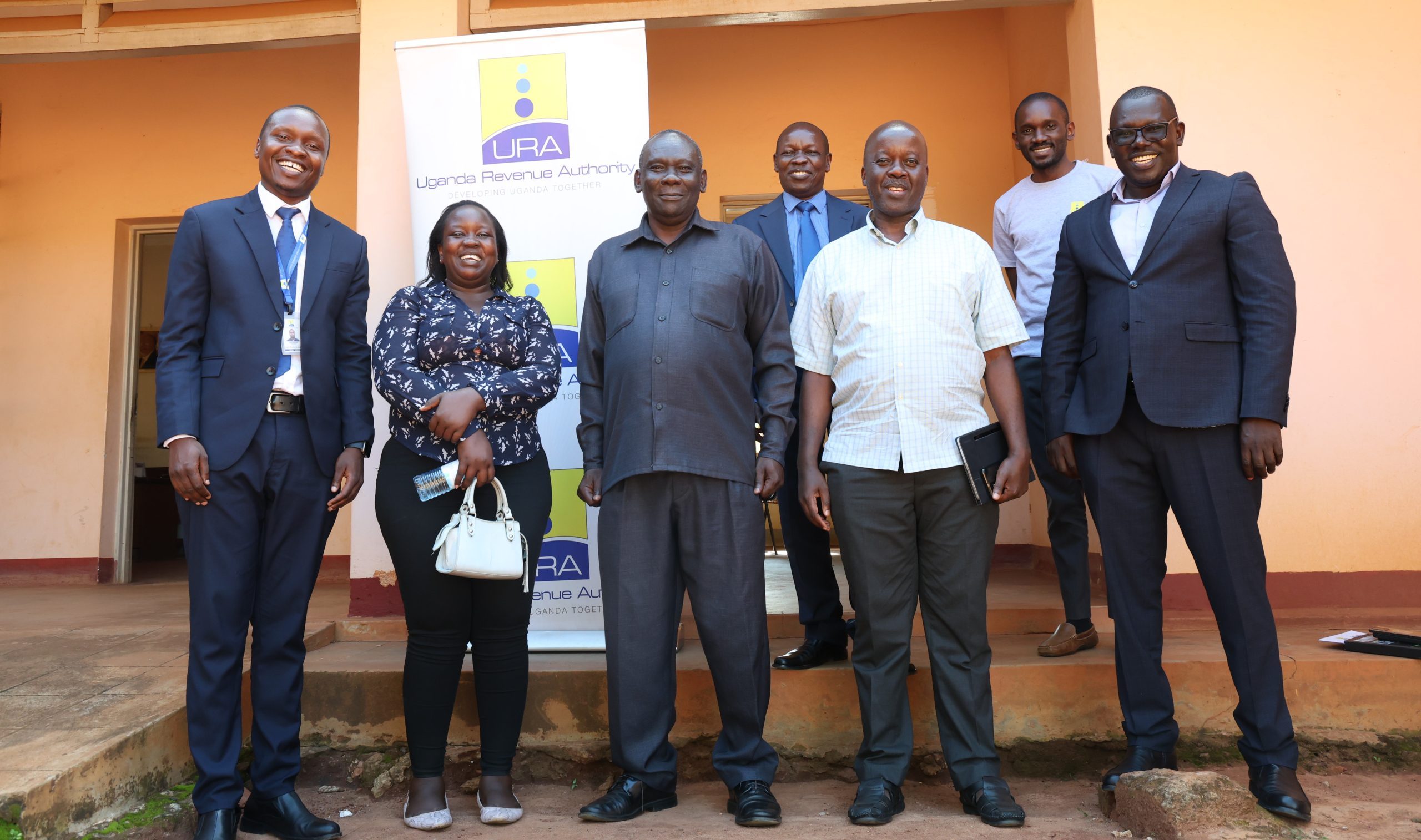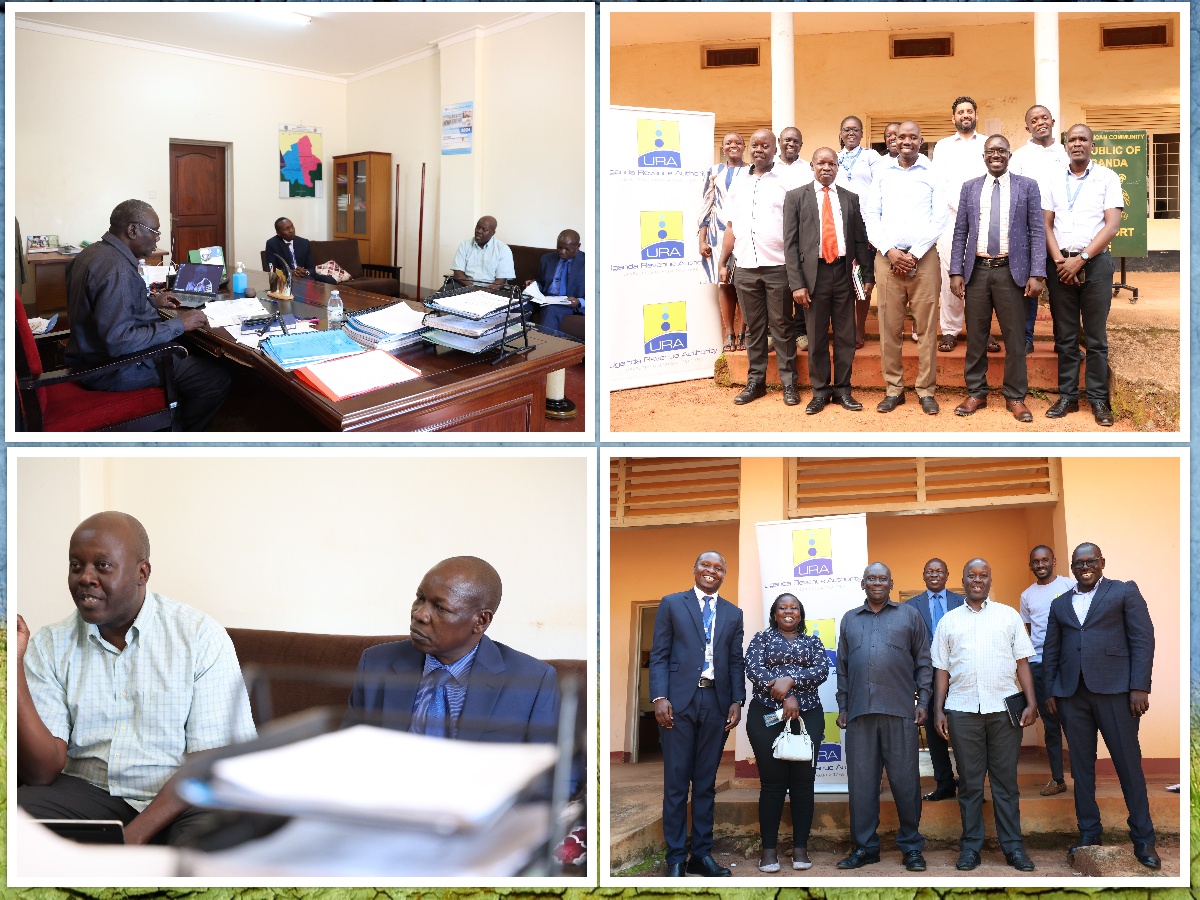
Uganda Revenue Authority (URA) has been strengthening its collaboration with the offices of Resident District Commissioners (RDCs) and Resident City Commissioners (RCCs) to improve tax compliance and enhance revenue mobilization across the country.
As part of the ongoing Taxpayer Appreciation Season, URA leadership visited RDCs and RCCs in Lira and Gulu emphasizing the crucial role their offices play in supporting government revenue collection and national development.
One of the most notable visits took place in Gulu City, where URA’s Assistant Commissioner for Business Policy Charles Mua, Assistant Commissioner for Enterprise Architecture James Odong and Arthur Akol the Regional Manager for Domestic Taxes visited the Resident City Commissioner, Onoria Ambrose.
The team discussed key issues affecting the Northern region, including tax evasion, under-declaration, and smuggling. The leaders also explored potential collaborations in tax education to raise awareness about the importance of tax compliance.
The RCC expressed strong support for URA’s initiatives, emphasizing that the role of RDCs and RCCs is critical in mobilizing revenue. He also pledged to support URA’s efforts by offering free airtime on local radio stations to promote tax compliance and share vital information.
“There are many opportunities here, but URA needs to create awareness so that people understand that tax collection is for public services like roads, hospitals, and schools. When people realize this, they are more likely to support the tax system,” Onoria said.
He further pointed out the importance of encouraging local communities to engage in mass agricultural production and value addition, as this would boost local economic activity and increase taxable income. Additionally, Ambrose raised a concern about ensuring that funds collected from citizens reach the consolidated government fund to support national development projects.
“I recently inquired whether the city remittances have reached URA, as this will ensure that money collected from the people is properly channelled into national development,” he added.
In Lira City, URA officials held a similar discussion with local business leaders, including the head of the Lira Chamber of Commerce and the leader of the Pakistani business community. At the heart of the conversation was the need for greater business formalization and the adoption of the Electronic Fiscal Receipt and Invoice System (EFRIS), which has been improving business efficiency and reducing tax evasion.
Patrick Ouni, the Officer for the Business Chamber of Commerce in Lira, emphasized the need for frequent training to improve understanding of the tax system. He pointed out that the introduction of EFRIS has helped eliminate fraud in local businesses, particularly among hardware traders who had previously been cheated by employees using manually generated receipts.
“With EFRIS, the theft stopped, and traders now have a reliable system for accountability,” Ouni said.
James Odong, URA’s Assistant Commissioner for Enterprise Architecture, shared updates on the authority’s ongoing efforts to integrate local government systems with URA’s processes. He explained that the local government’s IRAS system, which is used to pay licenses, is being integrated with URA’s tax systems to ensure that businesses are automatically triggered to presumptive tax.
Lira City’s Assistant Resident City Commissioner, Otucu Bonny, also pledged continued support for URA’s initiatives, including providing government airtime for tax-related messaging through local radio stations.
Through these collaborations, URA is not only advancing tax education but also reinforcing the message that paying taxes is a collective responsibility that benefits all citizens.
By Joshua Niyonshima




No Comments yet!